-
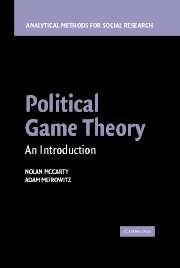
Political Game Theory
Political Game Theory is a self-contained introduction to game theory and its applications to political science. The book presents choice theory, social choice theory, static and dynamic games of complete information, static and dynamic games of incomplete information, repeated games, bargaining theory, mechanism design and a mathematical appendix covering, logic, real analysis, calculus and probability theory. The methods employed have many applications in various disciplines including comparative politics, international relations and American politics. Political Game Theory is tailored to students without extensive backgrounds in mathematics, and traditional economics, however there are also many special sections that present technical material that will appeal to more advanced students. A large number of exercises are also provided to practice the skills and techniques discussed. Contents 1. Introduction; 2. The theory of choice; 3. Choice under uncertainty; 4. Social choice theory; 5. Games in the normal form; 6. Bayesian games in the normal form; 7. Extensive form games; 8. Dynamic games of incomplete information; 9. Repeated games; 10. Bargaining theory; 11. Mechanism design and agency theory; 12. Mathematical appendix. -
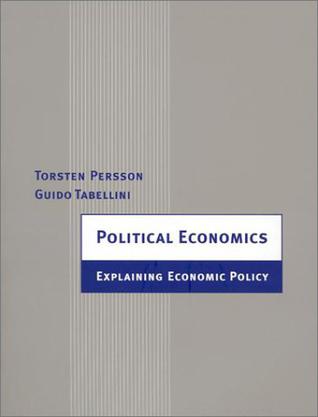
Political Economics
What determines the size and form of redistributive programs, the extent and type of public goods provision, the burden of taxation across alternative tax bases, the size of government deficits, and the stance of monetary policy during the course of business and electoral cycles? A large and rapidly growing literature in political economics attempts to answer these questions. But so far there is little consensus on the answers and disagreement on the appropriate mode of analysis.Combining the best of three separate traditions--the theory of macroeconomic policy, public choice, and rational choice in political science--Torsten Persson and Guido Tabellini suggest a unified approach to the field. As in modern macroeconomics, individual citizens behave rationally, their preferences over economic outcomes inducing preferences over policy. As in public choice, the delegation of policy decisions to elected representatives may give rise to agency problems between voters and politicians. And, as in rational choice, political institutions shape the procedures for setting policy and electing politicians. The authors outline a common method of analysis, establish several new results, and identify the main outstanding problems. -
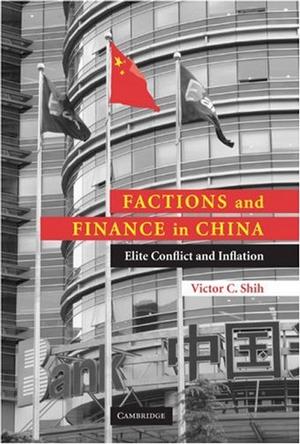
Factions and Finance in China
How does the Chinese banking sector really work? Nearly all financial institutions in China are managed by members of the Communist Party, yet economists and even those who engage the Chinese banking sector simply do not have a framework with which to analyze the links between banking and politics. Drawing from interviews, statistical analysis, and archival research, this book is the first to develop a framework with which to analyze how elite politics impact both monetary and banking policies. This book serves as an important reference point for all subsequent work on Chinese banking. -
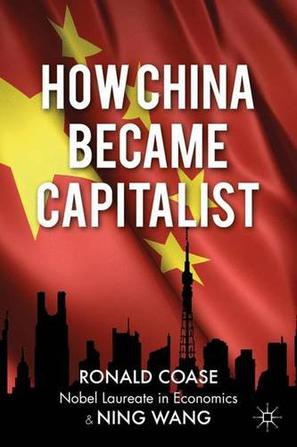
How China Became Capitalist
This book examines the extraordinary events that led to China's transformation from a close agrarian socialist economy to becoming an invincible manufacturing powerhouse of the global economy. -
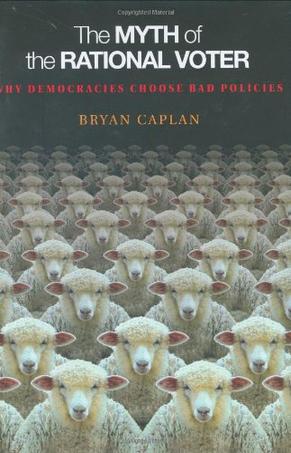
The Myth of the Rational Voter
-
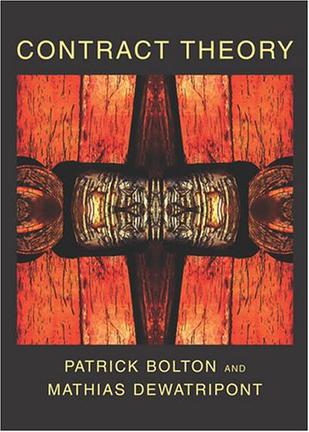
Contract Theory
Despite the vast research literature on topics relating to contract theory, only a few of the field's core ideas are covered in microeconomics textbooks. This long-awaited book fills the need for a comprehensive textbook on contract theory suitable for use at the graduate and advanced undergraduate levels. It covers the areas of agency theory, information economics, and organization theory, highlighting common themes and methodologies and presenting the main ideas in an accessible way. It also presents many applications in all areas of economics, especially labor economics, industrial organization, and corporate finance. The book emphasizes applications rather than general theorems while providing self-contained, intuitive treatment of the simple models analyzed. In this way, it can also serve as a reference for researchers interested in building contract-theoretic models in applied contexts.The book covers all the major topics in contract theory taught in most graduate courses. It begins by discussing such basic ideas in incentive and information theory as screening, signaling, and moral hazard. Subsequent sections treat multilateral contracting with private information or hidden actions, covering auction theory, bilateral trade under private information, and the theory of the internal organization of firms; long-term contracts with private information or hidden actions; and incomplete contracts, the theory of ownership and control, and contracting with externalities. Each chapter ends with a guide to the relevant literature. Exercises appear in a separate chapter at the end of the book.